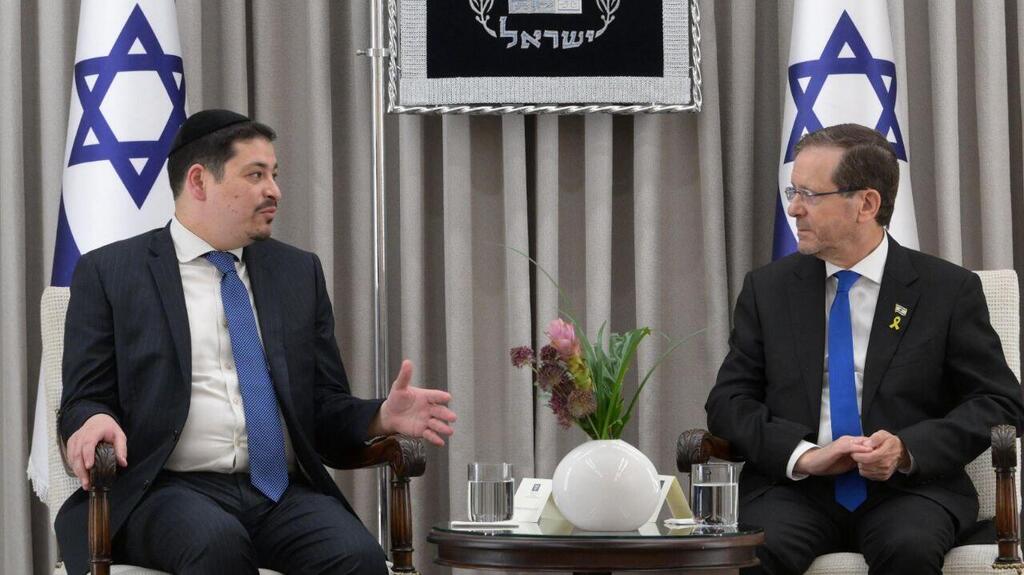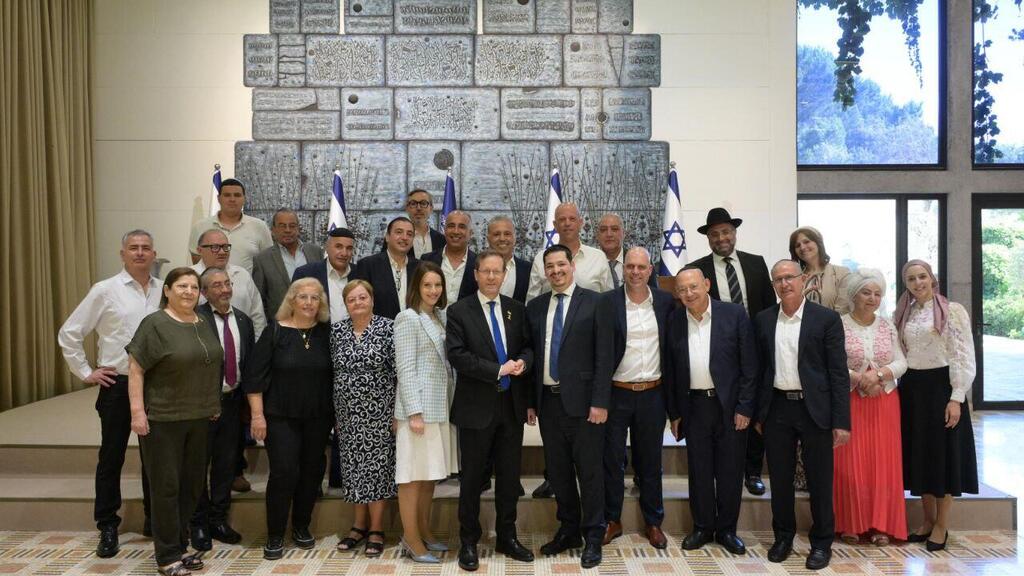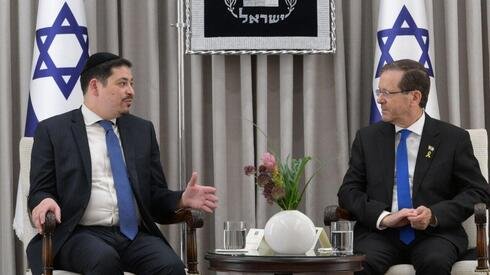During the gathering at the President’s Residence in Jerusalem, Herzog also met with Rabbi Binyamin Hamra, the chief rabbi of Syrian Jews in Israel. He echoed the call of the Syrian-Jewish leadership to “renew dialogue between peoples and religions as a bold step toward regional reconciliation.”
2 View gallery


Rabbi Binyamin Hamra, the chief rabbi of Syrian and Isaac Herzog
(Photo: GPO/ Amos Ben Gershom)
The community representatives also shared plans to establish a dedicated center for Syria–Israel relations, aimed at preserving Syrian Jewish heritage, honoring prominent figures in the community, and promoting reconciliation initiatives that connect religious leaders across the region.
2 View gallery


resident Isaac Herzog met with leaders of the Syrian-Jewish community in Israel and abroad
(Photo: GPO/ Amos Ben Gershom)
“We will continue to advance peace between Israel and Syria through all available means,” he added, “and work toward mediation between the countries. We long for full peace.” According to Hamra, “There are many people in Israel with Syrian roots, and now there’s a younger generation born here—we must preserve our story and pass it on.” Herzog concluded: “This isn’t just about memory and heritage—it’s a complete vision for the future.”
The last Jews in Syria
“At the beginning of the war, the site was hit in the bombings,” said Hamra. “I don’t believe it was intentionally targeted, but the result is deeply painful. Today the synagogue is closed, and all that’s left is a pile of rubble. Some published photos of walls from the site, but they were from an adjacent structure, not the synagogue itself. The true remains are just a collapsed ruin. It breaks the heart.”
Hamra said that under al-Sharaa’s regime, “They are signaling peace. From their perspective, Syrian Jews can return and live there.” He shared: “The Jews still there are isolated. They are not being harassed, and at the same time, the authorities show signs of goodwill. The government’s message to Jews abroad is: ‘Come back, return, and reclaim your property.’ They want peace—this shows a spirit of reconciliation, and that’s what we hope for.”
When you see the massacre of the Druze, aren’t you concerned that Jews might also be targeted?
“What’s happening in Syria these past days is heartbreaking, even if it’s unrelated to the Jews. We stand in solidarity with peace and reconciliation among religions—whether it’s Christians, Muslims, Druze, Bedouins, or any part of humanity. We must respect one another. The images from Sweida are heartbreaking, regardless of who I identify with. We want all communities to live in peace and coexistence.”
Are you optimistic about the prospect of peace between Israel and Syria?
“We hope and pray for peace between Israel and Syria—that was the vision of Chief Rabbi Avraham Hamra, who believed in peace. We are passing indirect messages to the al-Sharaa government. The moment Israel is in a position to reach Syria, I believe we will be welcomed with open arms. We can’t predict the future, but we hope and pray that peace will come.”

